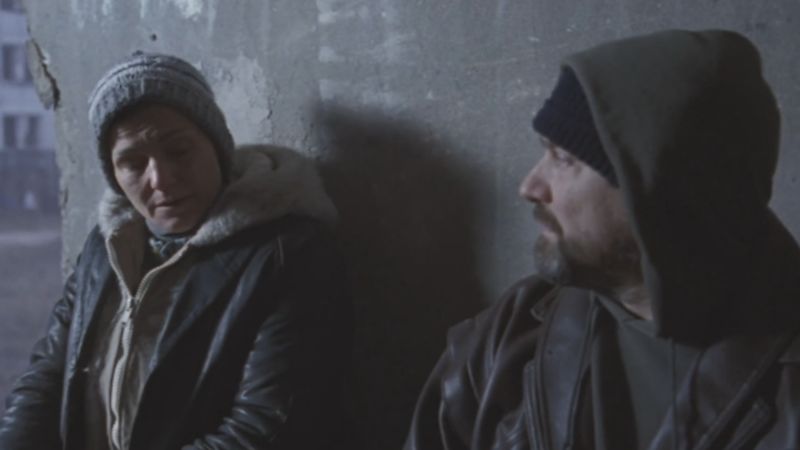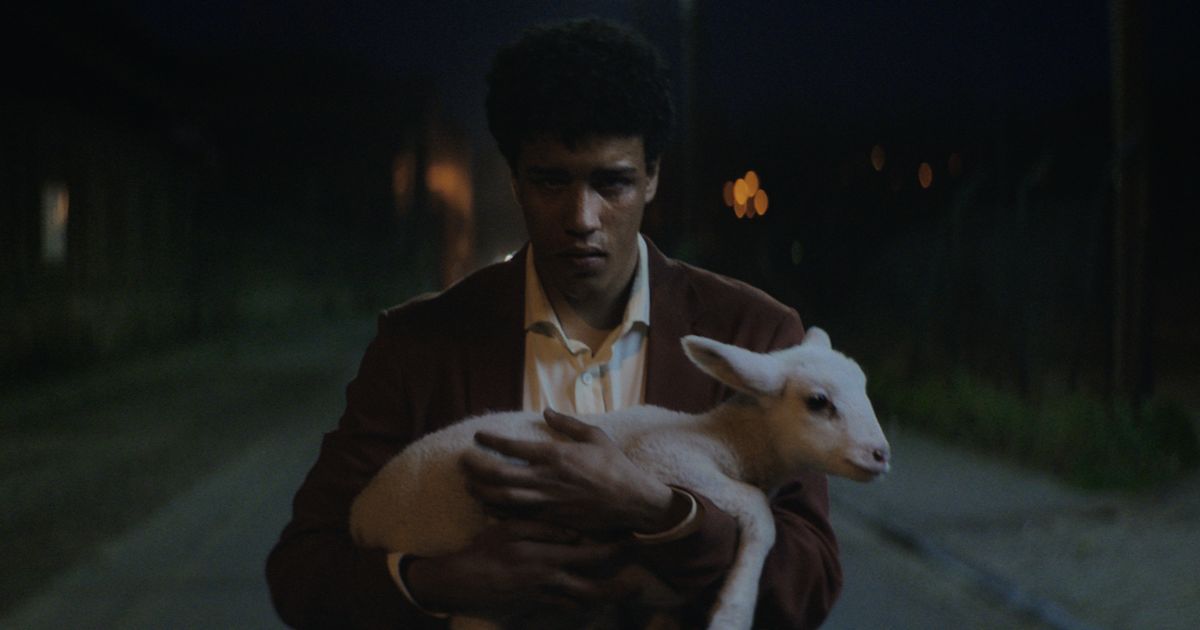YDA Producer of the Year-winner on targeting new talent
After picking up the Producer of the Year award at this year's YDA, HALAL's Partner and EP, Gijs Determeijer, reveals how the company sources new talent, and why it's the most important - and exciting - part of the process.
Two of your young directors picked up prizes at this year's YDA, and another was shortlisted; what is it about them and their work that made you want to sign them?
Our projects and directors have stood out at YDA before, but to win four awards in one year is rather mind-blowing. Particularly if you take into consideration that both of these films are perhaps not the most easily digestible.
Stray Sheep is a slow-paced, conceptual film dealing with personal issues of second generation immigrants. This project gave us the opportunity to show Madja Amin’s ability to tell a story that’s longer than 60-seconds.
Generally speaking there is not much room for risk-taking in the advertising world.
It’s also a stepping stone towards the TV film we are currently producing with him (set to premiere in 2020). Madja himself is a perfect example of the type of talent we think the commercial industry needs; a fresh perspective. He has an unorthodox path to becoming a filmmaker, and his work represents a different voice.
The way we find new talent is ever evolving. If you only look for them in the same places you won’t be able to create surprising work.
Generally speaking there is not much room for risk-taking in the advertising world, especially if you’re able to convince your team to work with a new talent. Which is understandable, there is a lot at stake ... So, getting that film out in the festival circuit, picking up a Silver Screen at YDA and online release on Nowness helped us showcase his potential to attract a new type of client. His latest commercial project for Maurten with Åkestam Holst is a perfect example of that.
Credits
powered by
-
- Production Company Compulsory
- Director Emmanuel Adjei
-
-
Unlock full credits and more with a Source + shots membership.
Credits
powered by
- Production Company Compulsory
- Director Emmanuel Adjei
- Production Co. Handsome
- Production Co. Halal
- Visual Effects Mathematic
- DP Paul Ozgur
- Producer Chris Toumazou
- Executive Producer Sam Fontaine
- Executive Producer Gijs Determeijer
- VFX Coordinator Guillaume Marien
- VFX Supervisor Yann Aldabe
- Flame Artist Fred Brandon
- Colorist Vincent Heine

Credits
powered by
- Production Company Compulsory
- Director Emmanuel Adjei
- Production Co. Handsome
- Production Co. Halal
- Visual Effects Mathematic
- DP Paul Ozgur
- Producer Chris Toumazou
- Executive Producer Sam Fontaine
- Executive Producer Gijs Determeijer
- VFX Coordinator Guillaume Marien
- VFX Supervisor Yann Aldabe
- Flame Artist Fred Brandon
- Colorist Vincent Heine
Above: Shahmaran by Emmanuel Adjei.
The Walking Fish by Thessa Meijer is a slightly absurd film that tells the story of an ambitious sea-creature that pursues her dream to join the human world. When Thessa shared her initial idea and told us she wanted to film this in Japan we were immediately excited. That’s what I’m looking for, work and directors that excite me [read the full interview with Thessa Meijer here].
Discovering new talent is such an essential part of what we do. And it’s also one of the most exciting parts.
Shahmaran by Emmanuel Adjei was also nominated in the Music Video category. This project was very special, a three-year collaboration between production companies Compulsory (UK) and Handsome (FR). We all really believed this work would show the world what Emmanuel is capable of, it resulted in two UK MVAs and put him on Madonna’s radar for whom he just directed two videos [Dark Ballet and Batuka].
Credits
powered by
-
- Production Company Halal
- Director Madja Amin
-
-
Unlock full credits and more with a Source + shots membership.
Credits
powered by
- Production Company Halal
- Director Madja Amin
- DP Noel Schoolderman
- Production Designer Tim Balk
- Composer Raven Aartsen
- Editor Wouter van Luijn
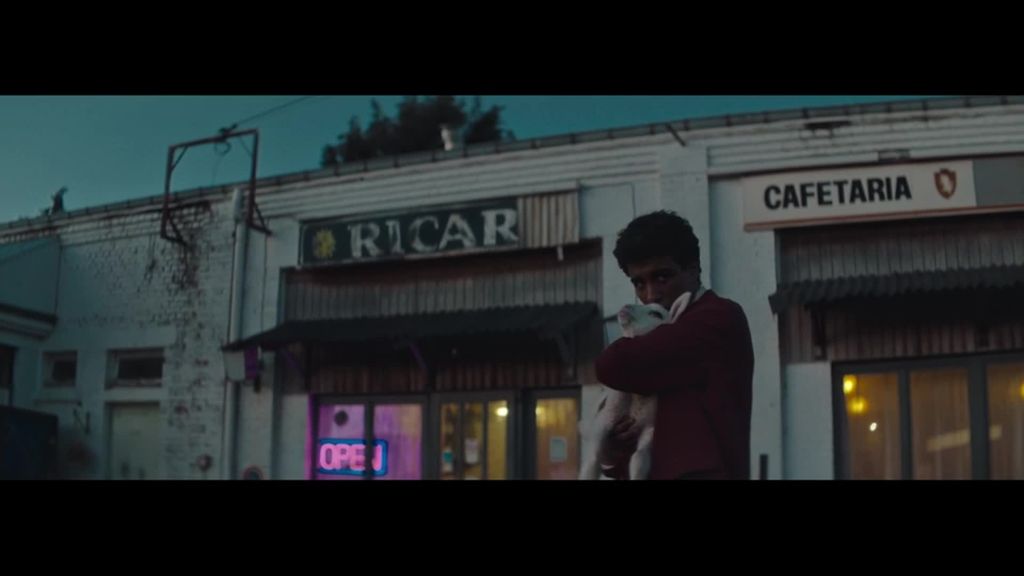
Credits
powered by
- Production Company Halal
- Director Madja Amin
- DP Noel Schoolderman
- Production Designer Tim Balk
- Composer Raven Aartsen
- Editor Wouter van Luijn
Above: Madja Amin's Silver Screen-winning film, Stray Sheep.
Discovering new talent is one of the most important elements of a production company's job, but how hard has that become over the last few years?
Indeed, discovering new talent is such an essential part of what we do. And it’s also one of the most exciting parts; venturing out on a new chapter with a talent you believe in, and crafting work that will put them on the right people’s radar.
There are so many more young directors these days but it’s still really hard to find the ones who really do their own thing.
The way we find new talent is ever evolving. If you only look for them in the same places you won’t be able to create surprising work. So, we look for talent everywhere, which of course makes it harder. But on the other hand, after years of investing in young talent we are now in the lucky position that both local and international directors and photographers approach us for representation.
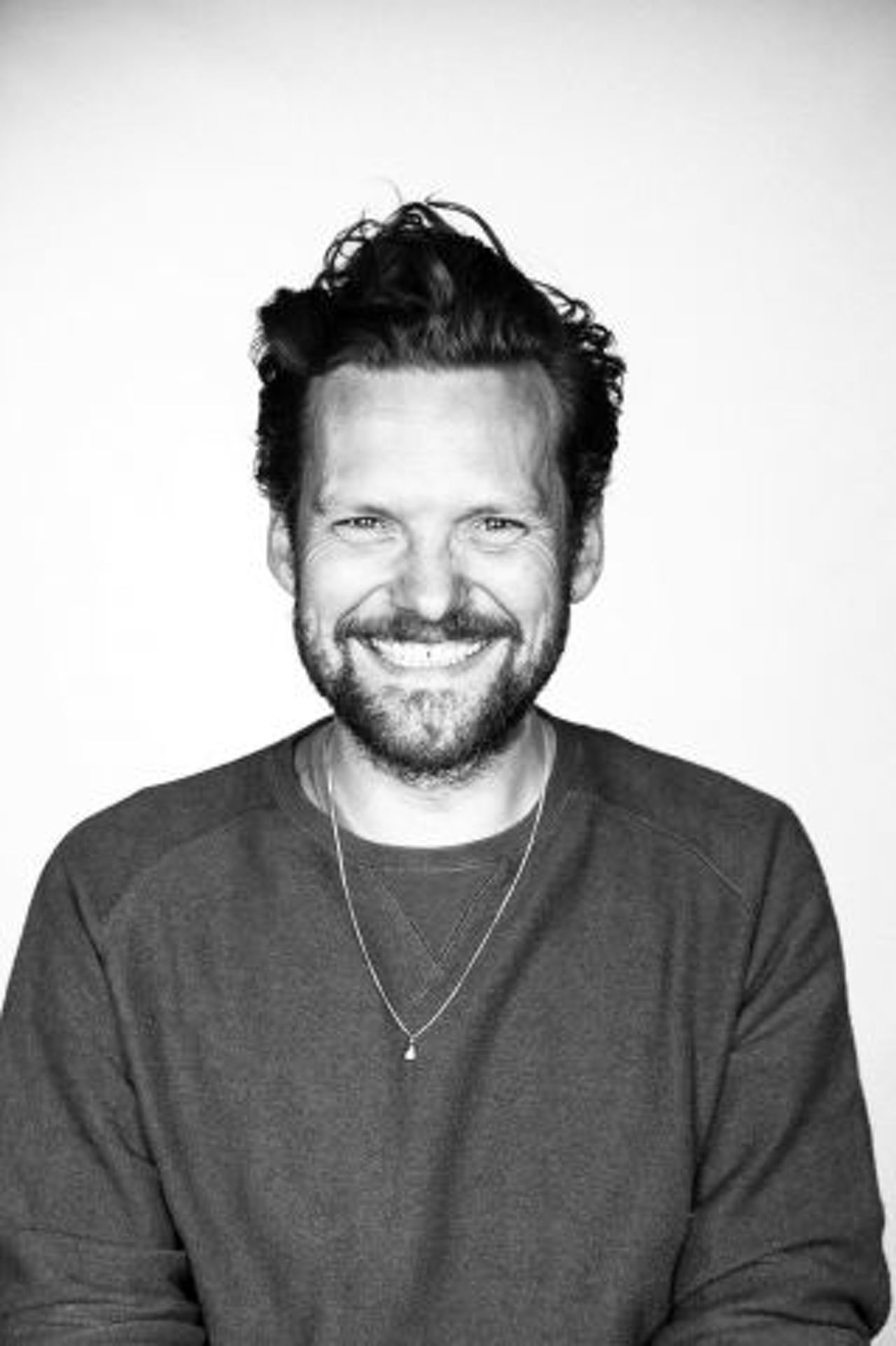
Above: HALAL's Partner and EP, Gijs Determeijer
Has the increase in access to filmmaking tools and people's ability to call themselves directors made your job more or less difficult?
Ironically, there are so many more young directors these days but it’s still really hard to find the ones who really do their own thing. I tend to find that the age of content has made it easier to discover new talent - you can basically be your own publisher - but made it harder to stand out. It sometimes feels like they’re all looking at each other. The challenge for us is to find the ones who have their own visual stamp and a good sense of their artistic DNA.
In order to make sure our talent don’t turn into one-trick-ponies, they need to build up that trust from potential commercial clients.
I do think it’s really cool to see that directors these days come from more varied backgrounds than before. The fact that filmmaking has become more democratised means that we can more easily bring new voices and perspectives into the craft. So, the fact that the pool of talent is growing is only positive, because it means that the future of this industry will be more diverse, more innovative and be able to create content that is relevant to more widespread audiences.
Credits
powered by
-
- Production Company Halal
- Director Thessa Meijer
-
-
Unlock full credits and more with a Source + shots membership.
Credits
powered by
- Production Company Halal
- Director Thessa Meijer
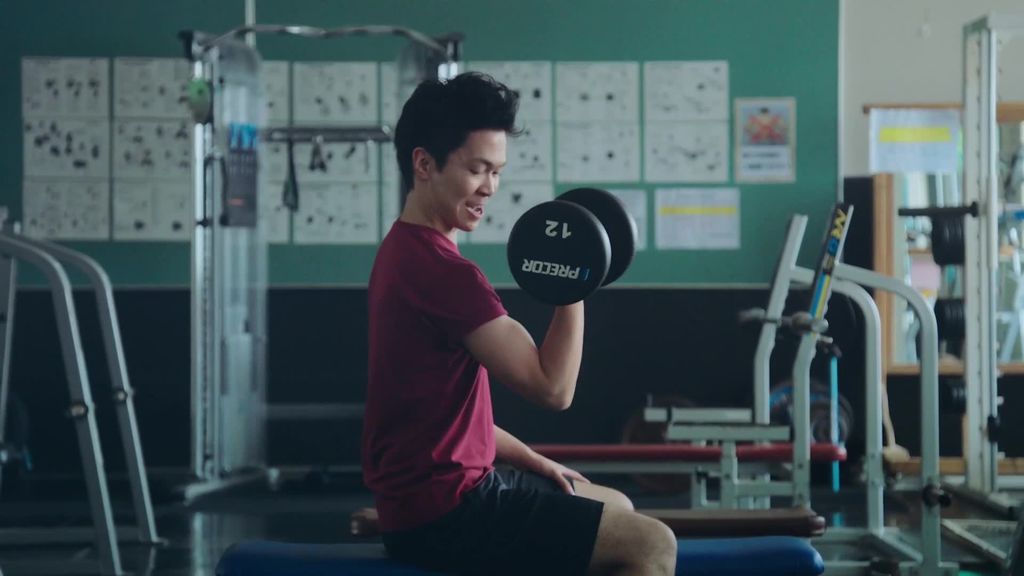
Credits
powered by
- Production Company Halal
- Director Thessa Meijer
Above: A clip from Thessa Meijer's Gold-winning The Walking Fish.
After discovering them, those talents need to be nurtured; with a lot of lower budget ad scripts being taken in-house, how hard has that nurturing become?
Well, it depends how you look at it. For us, I think the recent changes in our industry has opened a lot of doors. First of all, in terms of more ad-scripts being taken in-house, it’s always a good and different experience for directors (and us) to get the chance to work direct-to-client. It often has space for the director to be involved at an earlier stage.
The way we nurture our talent takes time, it takes loyalty, trust and investment from both ends.
Besides that, if you look at how the commercial industry is evolving with branded content, long-form, documentary approaches and so forth, that’s exactly the type of work we’d always wanted to do. Working with our talents commercially these days doesn’t come in one set shape or form. We do, of course, realise that it takes some courage to go for a new, young director and try different types of content/formats. So, in order to make sure our talent don’t turn into one-trick-ponies, they need to build up that trust from potential commercial clients by showing their capabilities in other ways.
It’s about us investing time and money into making sure our directors are well rounded, venture into paths they haven’t taken yet, and create work that makes them relevant by collaborating with new people, in different fields, giving them exposure and experience which ultimately will benefit the commercial work. That’s the beauty of having different departments - we have a photography, documentary, fiction and commercial department - working towards the same goal. Our talent cross-over, and we can invest in them from various angles.
The YDA is the only place in our industry that gives these young directors a platform of this scale.
So, the way we nurture our talent takes time, it takes loyalty, trust and investment from both ends. In general we help them to find their own voice, and use it. As a production company and their mother-agent, it’s our role to provide them with opportunities to help them explore their artistic DNA and showcase their capabilities. Finally, we help our directors to pay their bills, so they can live off what they love doing and embark on new passion projects.
Credits
powered by
- Agency Akestam Holst/Stockholm
- Production Company Halal
- Director Madja Amin
-
-
Unlock full credits and more with a Source + shots membership.
Credits
powered by
- Agency Akestam Holst/Stockholm
- Production Company Halal
- Director Madja Amin
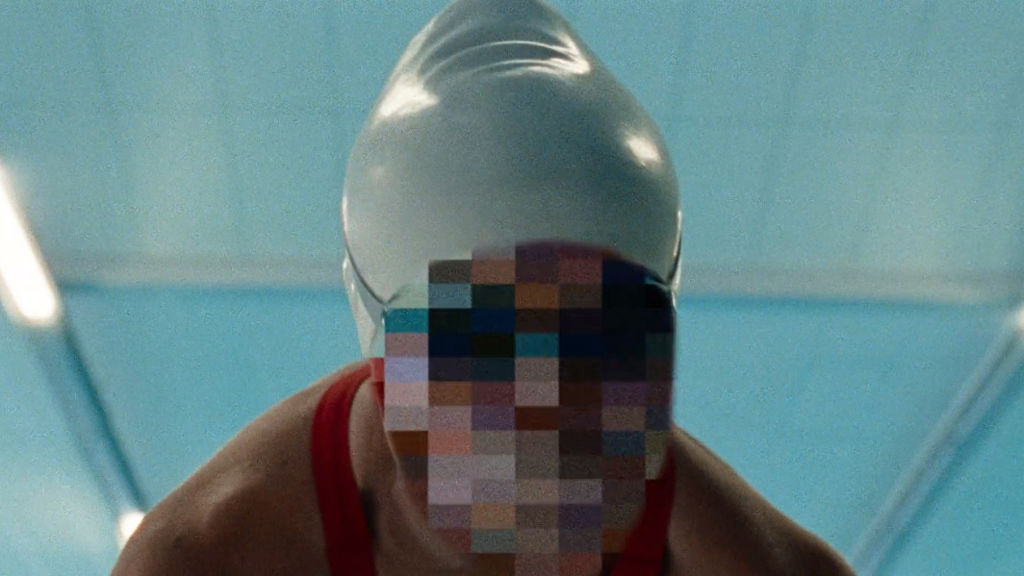
Credits
powered by
- Agency Akestam Holst/Stockholm
- Production Company Halal
- Director Madja Amin
Above: Madja Amin's recent commercial work for Maurten.
With so much work and so many directors out there, can you give any tips to aspiring directors on what pitfalls to avoid in their quest to be signed?
Don’t look too much at what other people are doing. Do what you want to do. And get yourself a dedicated production company who can help you make strategic choices of which steps to take in order for you to get the right opportunities to grow. I often tell our directors to not be afraid of making something ‘uncool’. Just make a lot, don’t sit around waiting for the ‘perfect project’.
I do firmly believe that investing in talent in different ways pays off.
Why do you think HALAL has been so successful in its promotion of new talent?
I think [it's because] we never take it for granted that good work automatically gets noticed. So, it’s inherent to what we do to think of ways to get the work out there from the very beginning. Providing our talent a platform to showcase the work is perhaps as important as enabling them to make the work. We see it as a crucial part of what we do, to help them find their way in the festival circuit, build their own brand, introduce them to media outlets, connect them with the right audiences and ultimately make sure the work gets in front of the right people.
It is extremely motivating to me that agencies in Paris and Los Angeles are now looking to Amsterdam for talent.
It might also be a personality thing, our global mindset with roots in Amsterdam. We’ve always wanted to play in the big league, not for the sake of it but for the sake of the work. So, getting on the radar of the international scene has been crucial in realising this ambition. The fact that we’ve been part of driving the new Dutch wave of talent, who have gained a reputation worldwide for being some of the most attractive, maybe explains a bit what I mean.
It is extremely motivating to me that agencies in Paris and Los Angeles are now looking to Amsterdam for talent. Even though this means that our talent will then also be on the radar of other production companies, it equally means global agencies and brands are keeping an eye on us. And it means that established talent not operating in our market look to us for representation.
How important are events like the YDA in helping push new directorial talent?
Very important. As mentioned already, I firmly believe that investing in talent in different ways pays off. Investing in making different types of work and investing in awards, PR and visibility. By putting money into a short film, let’s say like The Walking Fish, that then brings home awards at the YDA, will put Thessa on the map and perhaps some creative director returns home with the feeling of having discovered her. Maybe the CD is then excited to give her the opportunity to work on a campaign for them, and for them to be associated with her as a rising talent.
The YDA is the only place in our industry that gives these young directors a platform of this scale. Alongside Ciclope it has been my go to event for years. Ciclope with a focus on craft, and the YDA in craft and young talent – my two favourite things in this industry.
)

